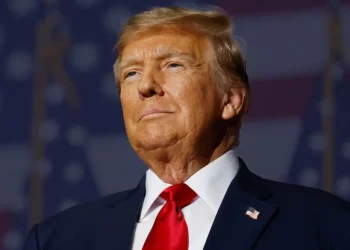In order to close the substantial financing gap in its efforts to eradicate tuberculosis (TB) and reach its 2030 target of zero TB cases, Nigeria is looking to the private sector for a $25 million (N40 billion) investment.
Currently, only 6% of the National TB budget comes from domestic sources, leaving a 70% financing gap, posing a serious challenge to the broad deployment of new TB interventions and the execution of the 2021-2026 TB National Strategic Plan.

Prof. Mohammed Ali Pate, Coordinating Minister of Health and Social Welfare, stated this in Lagos over the weekend, saying the federal government would equal the private sector’s financial contribution to the aim.
Speaking at the Private Sector Strategy to End Tuberculosis in Nigeria launch, which was organised by the Stop TB Nigeria Partnership, Pate issued a call to action regarding the need of the private sector’s involvement in ending TB in Nigeria.
She stated that the goal was to really energise and bring the public and private sectors together to work together to end TB.
“What we’ve offered to the private sector and captains of industry, to the millionaires and billionaires that are Nigerians, is that if they step up to $25 million (N40 billion), we would work to match them both in terms of domestic resources and also mobilising other philanthropic sources to invest,” Pate said.
In an effort to eradicate tuberculosis by 2030, the federal government and the corporate sector have reached this agreement.
Together, with a strategy to track our advancement over time, we can make sure that our resources are spent effectively, transparently, and efficiently.
“What we are doing is pointing out that the federal government, state governments, the governor’s wife of Lagos state, and the Lagos state government all play a part. Additionally, the private sector joins us in our development partners’ efforts. Over time, with cooperation, we can eradicate tuberculosis in Nigeria, but the road ahead is lengthy.
Pate indicated that Nigeria needs more than $25 million to achieve its aim of eradicating tuberculosis, and that various entities are supporting the country’s efforts.
“The Global Fund Against HIV, TB, and Malaria is providing grant funding for Nigeria’s efforts, and the Nigerian government is also contributing and will do more in the future, but there are gaps because we are screening and finding more cases, so obtaining the drugs to treat them may be difficult, say, beginning next year.
So we anticipate that, while the federal government will do more in 2025, we will also provide opportunities for the private sector to contribute more, as many of them employ people.” The Sustainable Development Goal (SDG) targets for 2030 include a 90% decrease in TB mortality and an 80% reduction in new TB infections per 100,000 people per year, compared to 2015 levels.
However, Dr. Chukwuma Anyaike, the Federal Ministry of Health’s Director of Public Health, issued a warning, stating that by the first quarter of 2025, Nigeria might have too many TB patients for it to care for. For this reason, the private sector strategy is crucial as a thorough and coordinated call to action for the private sector to become involved in the fight against TB in Nigeria. In a broader sense, universal TB coverage cannot be attained without the private sector, according to Dr. Walter Mulombo, Country Representative, WHO Nigeria.
“The private sector must be fully engaged in the provision of TB and other care in Nigeria. Over time, the TB budget has been consistently reduced, and it now stands at 70%. For example, consider the widespread adoption of novel quality and indigenous-based interventions across the country, with a large number of individuals yet to be addressed. “We see largely treatment and prevention services. The value provided by seeking TB services must be addressed if the country is to meet its end-TB aim by 2030. We anticipate that the private sector participation and strategy being announced would assist governance and public health resources needed to eradicate the disease in the country,” Mulombo stated.
Dr Amos Omoniyi, WHO’s National Programme Officer for TB, stated in a presentation that Nigeria is one of the 30 nations with the highest TB burden in the world, while blaming the massive budget gap on donor dependency, low treatment coverage, and limited access to diagnostic technologies. “Nigeria has the greatest TB burden in Africa, with a projected 479,000 cases by 2022 (19% of the African burden). In Nigeria, one person acquires tuberculosis every minute and one person dies from it every five minutes; however, 97,900 people perished from tuberculosis, accounting for 23% of all TB deaths in Africa.
“We expect the private sector to mobilise domestic resources to address the current gap in TB budget, procure additional molecular WHO Rapid diagnostic tool to ensure 100 percent coverage of the LGAs/universal coverage with TB diagnostic tool.”
Omoniyi cited the National Strategy Plan for TB eradicate 2024 to 2026 as evidence that Nigeria needs $1.21 trillion in overall funding to manage and eradicate tuberculosis. He claimed that as a result of prior private sector investments in 15 facilities,one in each state, 3,492 TB cases were reported overall in 2023, and 829 deaths were avoided during that time.
In Essence
The collaborative approach, involving federal, state, and private sector efforts, aligns with the Sustainable Development Goals (SDGs) targets for 2030, aiming for a 90% reduction in TB mortality and an 80% reduction in new TB infections. The strategy also highlights the necessity of transparent and efficient use of resources, as well as continuous monitoring of progress.
Engaging the private sector in the fight against TB can lead to innovative solutions and expanded reach, particularly in underserved areas. Prior private sector investments have already shown positive outcomes, such as increased TB case reporting and reduced mortality. This initiative could further amplify such successes, ultimately contributing to the eradication of TB in Nigeria.

















